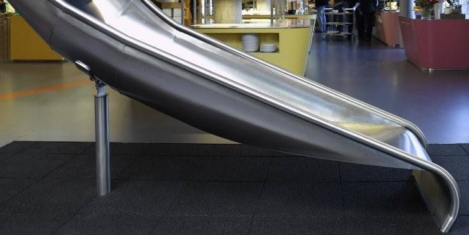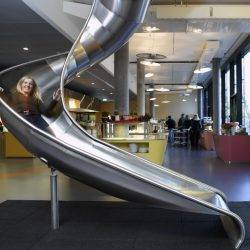November 1, 2017
Division of workplace hierarchy on impact of office design and flexible working

There is a divide in the importance placed on the office environment among different levels of the UK workforce, with new research suggesting C-Suite executives do not fully appreciate the factors that keep employees happiest at work and the impact that the office environment has on their employees’ productivity and wellbeing. According to the new research by Peldon Rose and are happier and work most productive in the office, 88 percent of middle management and 84 percent of junior employees say they always or sometimes enjoy coming to work every day compared to 76 percent of C-Suite executives. In addition, junior and middle management employees are more inclined to work in the office, with 62 percent and 63 percent, respectively, saying they prefer to work in the office over at home (29 percent, 30 percent) compared to C-Suite who prefer to work at home (40 percent) rather than the office (24 percent). As a result, just a quarter of junior employees believe their office has a culture that allows them to work flexibly compared to nearly half of C-Suite.














 Employees who feel trusted by their employer to manage how and when they work for themselves can improve their levels of productivity, a new survey suggests. The research by Peldon Rose claims that UK workers rate feelings of trust and autonomy from employers and colleagues as increasingly important in keeping them productive and happy in the workplace. But the survey also shows that many employers are failing to provide employees with the resources and support they need to manage their workload and keep them motivated. Although the majority of staff (59 percent) say they work most productively in the office, a third (33 percent) wish they were more trusted to manage how and when they work and 42 percent say that their office does not support a culture that allows them to work flexibly. Despite the clear value that staff place on trust and autonomy, employers are overlooking an opportunity to create a confident and self-motivated workforce.
Employees who feel trusted by their employer to manage how and when they work for themselves can improve their levels of productivity, a new survey suggests. The research by Peldon Rose claims that UK workers rate feelings of trust and autonomy from employers and colleagues as increasingly important in keeping them productive and happy in the workplace. But the survey also shows that many employers are failing to provide employees with the resources and support they need to manage their workload and keep them motivated. Although the majority of staff (59 percent) say they work most productively in the office, a third (33 percent) wish they were more trusted to manage how and when they work and 42 percent say that their office does not support a culture that allows them to work flexibly. Despite the clear value that staff place on trust and autonomy, employers are overlooking an opportunity to create a confident and self-motivated workforce.

















October 25, 2017
Frederick Taylor was a man of his time not a whipping boy for ours
by Mark Eltringham • Comment, News, Workplace, Workplace design
More →